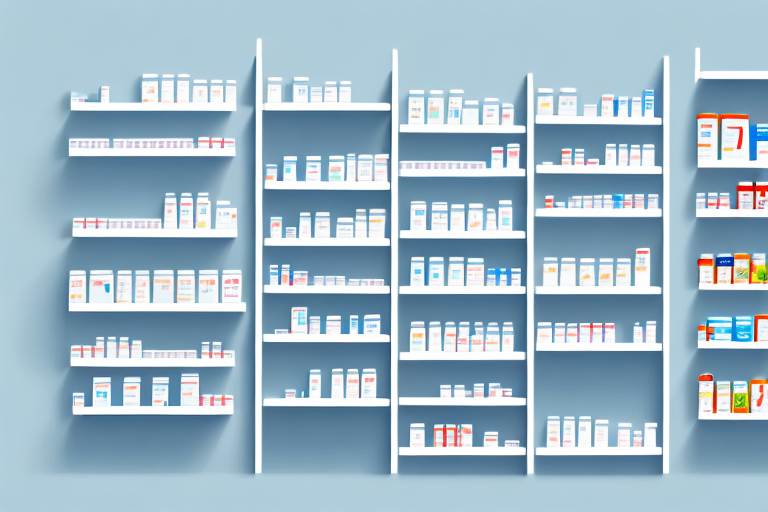The Importance of Reliable Medical Supply Delivery
In the healthcare industry, ensuring timely medical supply delivery is essential for optimal patient care. Whether it's medication, surgical tools, or medical equipment, these supplies must be delivered promptly to meet patient needs and minimize the risks of complications and delays. Reliable delivery is not only critical in emergency situations but also for the ongoing management of chronic conditions. Ensuring that medical supplies are consistently available helps maintain continuity of care, enhances patient outcomes, and supports the financial health of healthcare facilities by reducing waste and avoiding costly rush orders.
Impact of Timely Deliveries on Patient Outcomes
Timely deliveries of medical supplies play a pivotal role in determining patient outcomes. Delays or shortages can lead to treatment interruptions, increased complications, and reduced patient satisfaction. For example, timely access to essential medications can prevent adverse reactions and relapses, thereby shortening recovery times and lowering overall healthcare costs. Studies have shown that efficient supply delivery systems contribute significantly to higher rates of patient recovery and satisfaction.
Strategies for Streamlining the Medical Supply Chain
Optimizing Supply Chain Processes
Streamlining the medical supply chain involves optimizing the flow of supplies from suppliers to patients. This can be achieved by adopting lean inventory management practices, minimizing delays, and reducing the risk of stockouts or overstocking. Close coordination between healthcare providers and suppliers is essential, as is the use of technology and data-driven insights to manage the supply chain effectively.
Best Practices in Inventory Management
- Regular Inventory Reviews: Continuously monitor inventory levels and adjust stock based on demand forecasts.
- Expiration Tracking: Implement systems to track expiration dates and rotate stock accordingly to prevent wastage.
- First In, First Out (FIFO): Utilize FIFO methods to ensure older stock is used before newer supplies, reducing the risk of expired items.
- Demand Forecasting: Analyze usage patterns to predict future demand and optimize inventory levels.
Adhering to these best practices helps healthcare providers maintain an efficient inventory system, ensuring that critical supplies are always available when needed.
Leveraging Technology and Data for Optimal Delivery
Role of Advanced Technologies
Technology plays a crucial role in optimizing medical supply delivery. Tools such as electronic health records (EHR), supply chain management software, and real-time inventory tracking systems enhance the accuracy and efficiency of supply deliveries. For instance, RFID tracking technology allows providers to monitor the movement of medical supplies from the warehouse to the patient bedside, reducing the risk of lost or misplaced items.
Data-Driven Decision Making
Analyzing data related to supply chain performance enables healthcare providers to identify inefficiencies and areas for improvement. By leveraging data analytics, providers can optimize delivery routes, forecast demand more accurately, and implement cost-saving measures. According to a report by World Health Organization, data-driven supply chain management can lead to a 20-30% improvement in efficiency.
Collaborative Approaches to Ensure Timely Deliveries
Building Strong Supplier Relationships
Collaboration with suppliers is essential for ensuring reliable and timely delivery of medical supplies. Establishing strong relationships through clear communication, favorable contract negotiations, and mutual trust can enhance supply chain resilience. Healthcare providers should work closely with suppliers to develop contingency plans for emergencies and unexpected disruptions.
Integrated Supply Chain Networks
Integrating supply chain networks with suppliers and other stakeholders ensures better coordination and faster response times. Collaborative platforms and shared information systems can facilitate real-time updates and coordination, minimizing delays and improving overall supply chain responsiveness.
Balancing Costs and Quality in Medical Supply Management
Cost-Effective Supply Chain Practices
Managing costs while maintaining quality is a significant challenge in medical supply delivery. Implementing lean inventory practices, investing in efficient supply chain technologies, and negotiating competitive pricing with suppliers are effective strategies. These practices help reduce unnecessary expenses without compromising the quality of care.
Minimizing Waste Through Efficient Practices
Reducing waste by optimizing inventory levels and improving forecasting accuracy can lead to substantial cost savings. Efficient supply chain management ensures that medical supplies are used effectively, minimizing expired or unused stock and lowering overall healthcare delivery costs.
Future Trends in Medical Supply Delivery
Advancements in Supply Chain Technology
Emerging technologies such as blockchain and artificial intelligence are set to revolutionize medical supply chains. Blockchain can enhance supply chain transparency and traceability, while AI can improve demand forecasting and route optimization, leading to more efficient and reliable supply delivery systems.
Sustainability and Eco-Friendly Practices
The increasing emphasis on sustainability is driving healthcare providers to adopt eco-friendly supply chain practices. This includes using sustainable packaging, optimizing delivery routes to reduce carbon footprints, and partnering with suppliers committed to environmental responsibility.
The Evolution of Delivery Models
The rise of telemedicine and remote healthcare services is influencing how medical supplies are delivered. On-demand delivery models and e-commerce platforms are becoming more prevalent, offering patients greater convenience and flexibility in accessing necessary medical supplies.
Conclusion
Ensuring timely medical supply delivery is critical to providing optimal patient care in the healthcare industry. By adopting best practices for inventory management, leveraging advanced technologies and data-driven insights, and fostering collaborative relationships with suppliers, healthcare providers can streamline supply chain processes. These efforts not only enhance patient outcomes but also reduce costs and improve the overall quality of care. Staying informed about future trends and continuously optimizing supply chain strategies will ensure that healthcare facilities remain resilient and efficient in meeting patient needs.






















